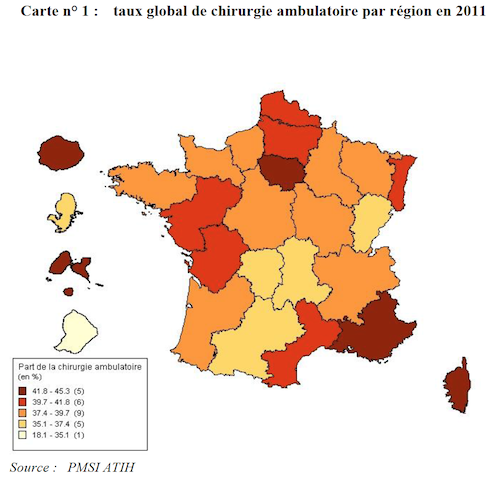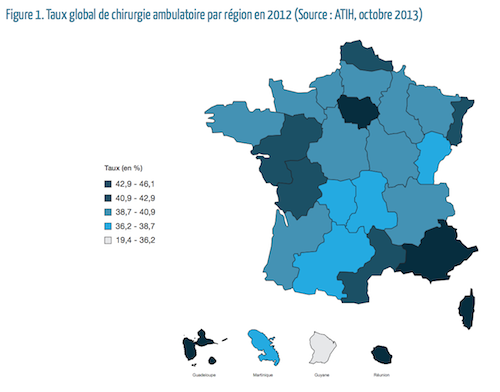SURVEY – 50% of surgeries performed on an outpatient basis, this is the government’s objective. But for the moment, the public sector only manages 30% of day hospital interventions. How to further improve the care and reception of patients? Why Doctor analyzes the strengths and the lags of this type of care.

Despite its obvious interest, outpatient care still needs to be improved in France, on several fronts. The country’s backwardness is only one symptom. This general figure (43%) also hides a more contrasting reality. In a 2013 report (PDF), the Court of Auditors underlines strong territorial disparities. In 2011, the share of outpatients varied from 35% (Franche-Comté) to 45% (Reunion). Differences still visible today.


The difficult city-hospital dialogue
“Brakes remain, whether it is the training of practitioners, the mode of articulation with city medicine for returning home, or the eligibility and information of patients”, underline the Wise Men. . For the General Inspectorate of Social Affairs (Igas), the reorganization of the hospital around the patient is a major obstacle to the development of outpatient care. It points out in particular the lack of training of surgeons and anesthetists on this management. “Certain excessive premedications can lengthen the times of anesthesia and therefore the period during which the patients are not very awake”, illustrates Olivier Untereiner, anesthesiologist at the Institut Mutualiste Montsouris (IMM). The dosage must therefore be adapted to the type of hospitalization.
A good outpatient follow-up requires good articulation with city medicine. This is one of the recommendations issued by the Haute Autorité de Santé in 2013. But the city / hospital dialogue is not always well oiled, according to Jacques Battistoni, general secretary of MG France. “We want the field of activity to be clearly defined and respected. Very regularly, MG France is questioned by its members on the influence of the hospital on the outpatient, he observes. I think it is important for the hospital to keep its expertise and for the outpatient department to remain in the field of city care. “
Listen to Jacques Battistoni, Secretary General (MG France): ” We often observe that people leave the hospital, and the letters arrive more than three months later. “
“They don’t have a sense of hospitality”
It is also difficult to assess the savings generated by the wider use of ambulatory care. Marisol Touraine expects 500 million euros of spending less by 2016, one billion in 2017. The National Academy of Medicine highlights a wider range, in its report of March 10, 2015 : it ranges from 0.5 to 6 billion euros in savings. “It is essential to carry out in France studies on the real costs, direct and derived in terms of cost accounting, on outpatient surgery, compared to the costs of similar acts on groups of similar patients, operated in a conventional way”, estimate the rapporteurs Renaud Denoix de Saint Marc, Michel Huguier and Gérard Milhaud.
On the patient side, the mechanics of the outpatient clinic seize up in places. “The morning after the operation, I called because I couldn’t remember what to do,” explains Emilie. What bothers me is that we leave without a compress. There is always residue, and I would like to avoid friction. “She also evokes a lack of psychological follow-up:” It’s been two months that I take the lead. I had made up my mind, I saw myself horrible. Before the operation, there should be psychological preparation, ”she said.
The accompanying persons, for their part, remain without news for several hours. From 7:45 am, Emilie’s children did not receive any information. “No one came to see us in 5 hours. Nobody, deplores her friend. They should be inspired by children’s hospitals, which include accompanying persons. “For Emilie’s daughter, the verdict is much more severe:” They have no sense of welcome. “
.

















